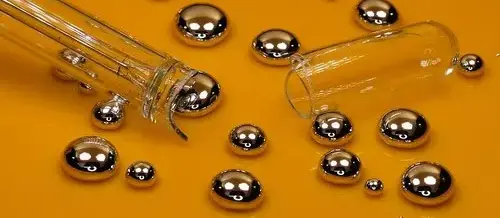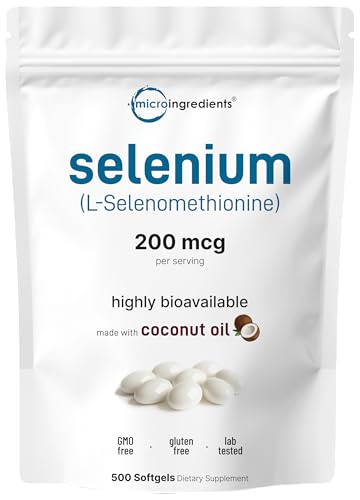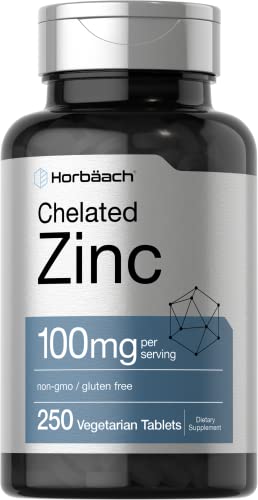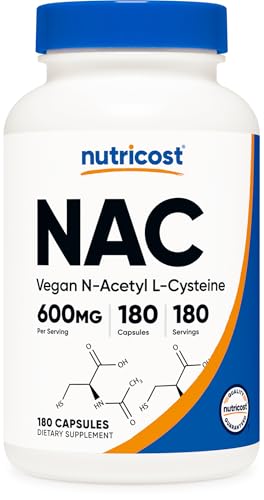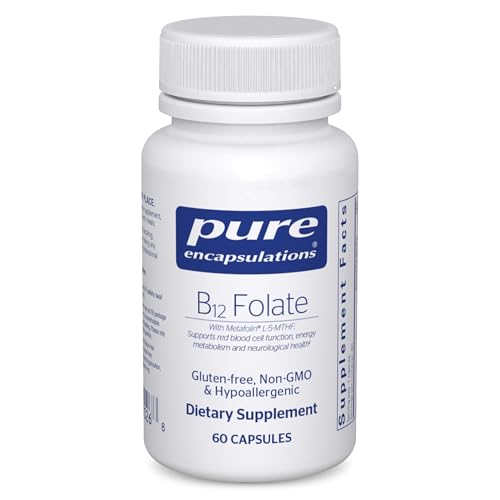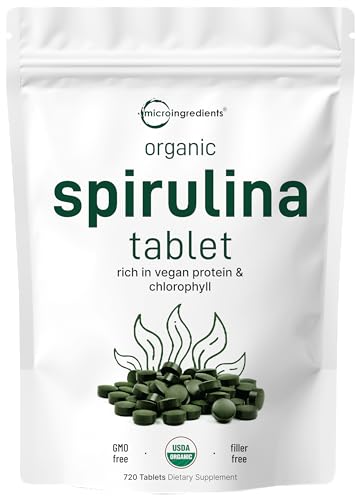Heavy metal toxins like lead, mercury, cadmium, and arsenic are naturally occurring elements found in the environment, from soil and water to air and food. While it’s impossible to eliminate exposure entirely, chronic or excessive exposure to these metals can pose serious health risks, accumulating in the body and potentially disrupting vital systems like the nervous system, liver, and kidneys. Fortunately, you can support your body’s natural detoxification processes and minimize the impact of heavy metals through targeted nutrition, lifestyle changes, and mindful habits.
Understanding Heavy Metal Exposure
Heavy metals are ubiquitous in our environment. They can enter the body through contaminated water, food, air, or everyday products. For example, mercury is found in certain fish, lead may linger in old pipes or paint, and arsenic can appear in rice or groundwater. While low-level exposure is often unavoidable, prolonged accumulation can lead to health issues, including fatigue, cognitive difficulties, and weakened immune function.
The body has natural detoxification systems, primarily through the liver, kidneys, and digestive tract, but these systems can become overwhelmed. By reducing exposure and supporting detoxification pathways with specific nutrients, you can help your body eliminate heavy metals more effectively and protect against their harmful effects.
Key Nutrients for Heavy Metal Detoxification
A nutrient-rich diet is one of the most powerful tools for supporting your body’s ability to detoxify heavy metals. Below are five essential nutrients that play a critical role in protecting against heavy metal toxicity and promoting their elimination.
Selenium: The Detox Powerhouse
Selenium is an essential trace element that plays a vital role in detoxification. It supports the production of glutathione, a potent antioxidant that binds to heavy metals like mercury and facilitates their removal from the body. Selenium also helps protect cells from oxidative damage caused by metal exposure.
https://www.sciencedirect.com/science/article/abs/pii/S0161813X20301546
How to Get It: Incorporate selenium-rich foods into your diet, such as Brazil nuts (one or two nuts provide the daily recommended amount), seafood like tuna or sardines, eggs, sunflower seeds, and whole grains. Be cautious not to overconsume selenium, as excessive intake can be harmful. Aim for 55-70 micrograms daily through food sources for optimal benefits.
Micro Ingredients Selenium Supplements for Women & Men 200mcg, 500 Softgels with Coconut Oil | Essential Trace Mineral as Selenomethionine | Antioxidant for Energy, Heart, & Immune Support
Selenium is a powerful trace mineral found naturally in soil-rich foods like Brazil nuts, whole grains, and leafy greens. It works as a powerful antioxidant that plays a key role in supporting heart, energy, and immune health at the cellular level. Selenium, as L-Selenomethionine, is a highly bioavailable form that your body absorbs easily and treats just like selenium from food.
Micro Ingredients offers high-absorption Selenium softgels with 200 mcg as L-Selenomethionine. This bioavailable formula is infused with healthy coconut oil to support efficient nutrient delivery and absorption.
Each pouch contains 500 coconut oil softgels, delivering a potent one-a-day serving size for long-term antioxidant and wellness support.
Selenium helps activate one of the body’s most powerful antioxidants, known as glutathione, supporting daily energy, immune, heart, and overall cellular health.
L-Selenomethionine is an essential trace mineral naturally found in foods and is easily recognized by the body, playing a key role in maintaining vitality and whole-body health over time.
Premium non-GMO supplements. Made without soy, dairy, and gluten. Ingredients must pass a 3rd party lab test to ensure our product is safe, pure, and potent.
View on AmazonZinc: A Protective Mineral
Zinc is an essential mineral that competes with heavy metals like lead and cadmium for binding sites in the body, reducing their ability to cause harm. It also strengthens the liver’s detoxification processes and supports cellular health, shielding against oxidative stress caused by heavy metals.
https://pmc.ncbi.nlm.nih.gov/articles/PMC2922724/
How to Get It: Include zinc-rich foods like oysters (one of the highest sources), pumpkin seeds, beef, chickpeas, lentils, and cashews. Adults typically need 8-11 milligrams of zinc daily, which can be easily achieved through a balanced diet. If you’re considering a supplement, consult a healthcare provider to determine the appropriate dosage.
Horbäach Chelated Zinc Supplement 100mg | 250 Tablets | High Potency & Superior Absorption | Vegetarian, Non-GMO, Gluten Free
MINERALS: Zinc is an essential mineral naturally found in various nutritious superfoods
POTENT NUTRIENT: Horbaach's 100 mg Chelated Zinc is formulated for Superior Absorption
SUPERIOR BENEFITS: Each serving contains a high potency Zinc source to support Overall Wellness*
HORBAACH MANUFACTURERS: Laboratory Tested, Trusted Ingredients, Superior Quality, 100% Guaranteed!
NATURALLY FREE OF: Gluten, Wheat, Yeast, Milk, Lactose, Soy, Artificial Color & Flavor & Non-GMO
View on AmazonN-Acetylcysteine (NAC): The Antioxidant Ally
N-Acetylcysteine, or NAC, is a powerful antioxidant that boosts glutathione levels, making it particularly effective against cadmium and mercury toxicity. NAC helps neutralize free radicals and supports the liver’s ability to process and eliminate toxins.
https://pmc.ncbi.nlm.nih.gov/articles/PMC3654245/
How to Get It: NAC is primarily available as a supplement, with dosages typically ranging from 600 to 1,800 milligrams per day, depending on individual needs. Always consult a healthcare professional before starting NAC supplementation. You can also support NAC’s effects by eating sulfur-rich foods like garlic, onions, and cruciferous vegetables (broccoli, cauliflower, Brussels sprouts), which indirectly enhance glutathione production.
Nutricost N-Acetyl L-Cysteine (NAC) 600mg, 180 Capsules - Non-GMO, Gluten Free
600mg of High Quality N-Acetyl L-Cysteine (NAC) Per Capsule
180 "Veggie" Capsules Per Bottle
Vegan, Non-GMO & Gluten Free
Made In a NSF Certified, GMP Compliant FDA, Registered Facility
3rd Party Tested By Independent, ISO-Accredited Laboratories
View on AmazonFolate: A Defense Against Arsenic
Folate, a B vitamin, supports methylation, a critical detoxification pathway in the liver that helps neutralize and eliminate toxins like arsenic. Adequate folate intake can reduce the toxic effects of arsenic exposure, which is particularly relevant for those consuming rice or living in areas with contaminated water.
https://onlinelibrary.wiley.com/doi/10.1155/2015/760689
How to Get It: Focus on folate-rich foods like leafy greens (spinach, kale, romaine lettuce), lentils, beans, avocados, and fortified grains. Aim for 400 micrograms of folate daily, which is achievable through a varied diet. If you suspect low folate levels, a healthcare provider may recommend a supplement, especially for pregnant women or those with specific health conditions.
Pure Encapsulations B12 Folate - Energy Supplement to Support Nerves, Energy Metabolism & Cognitive Support* - with Vitamin B Folate as Metafolin - 60 Capsules
Premium Folate Supplement: Vitamin B12 and folate help convert carbohydrates into energy and break down proteins in the body; provides metabolism support*
Nervous System Support: Vitamin B12 (methylcobalamin) and folate (L-5-MTHF) support the nervous system, and function as hair, skin, and liver aids.*
Cognitive Support: Folate is essential for fetal neural development; B12 is an important nutrient for memory and cognitive support*
Supports Gut Health: Support G.I. tract thanks to the active form of the B12 vitamin, methylcobalamin; also a liver support supplement*
Pure Difference: What we leave out matters, too; Pure Encapsulations products are free from common allergens, artificial or unnecessary ingredients, and GMOs
View on AmazonSpirulina: The Superfood Shield
Spirulina, a nutrient-dense blue-green algae, acts as a natural chelator, binding heavy metals in the digestive tract to prevent their absorption. It also supports liver function and provides antioxidants that combat oxidative stress caused by heavy metal exposure.
https://pubmed.ncbi.nlm.nih.gov/32749124/
How to Get It: Add 1-2 teaspoons of spirulina powder to smoothies, juices, or water daily. You can also find spirulina in tablet or capsule form. Choose high-quality, third-party-tested spirulina to ensure it’s free from contaminants, as low-quality sources may contain heavy metals themselves.
Micro Ingredients Organic Spirulina Supplement, 720 Tablets (4 Month Supply), No Filler & Non-GMO, Rich in Vegan Protein, Vitamins & Prebiotics, Premium Spirulina Pills
USDA Organic Spirulina Tablet from Spirulina Powder Organic (Arthrospira Platensis), 3000mg Per Serving, 720 Counts (4 Months Supply), Green Algae Super Food, Vegan Friendly, Filler Free, Irradiation Free, Easy to Swallow.
Loaded with Vegan Protein, Chlorophyll, Fiber, Amino Acids (Omega 3 6 9, GLA, Arginine), Fatty Acids, Immune Vitamins (Vitamin A, Vitamin B2, Vitamin B12, Vitamin C, Vitamin K, Biotin), Minerals (Magnesium, Calcium, Potassium & Zinc Vitamin), Flavonoids and Phytonutrients.
A nutrient-dense spirulina superfood made to complement everyday nutritional intake.
No GMOs, No Irradiation, No Additives, No Preservatives, No Artificial Colors, No Flavors, No Soy and No Gluten.
3rd Party Lab Tested for Purity and Safety. Made in USA.
View on AmazonBuilding a Heavy Metal Detox Diet
In addition to focusing on these key nutrients, adopting a diet rich in antioxidants and supportive foods can further enhance your body’s ability to detoxify heavy metals. Here are some dietary strategies to incorporate:
- Load Up on Antioxidants: Heavy metals generate free radicals, which can damage cells and tissues. Counteract this with antioxidant-rich foods like berries (blueberries, strawberries), citrus fruits, bell peppers, and dark leafy greens. Vitamin C, found in oranges, kiwi, and broccoli, is particularly effective at neutralizing oxidative stress.
- Support Liver Health: The liver is your body’s primary detox organ, so prioritize foods that enhance its function. Cruciferous vegetables like broccoli, cauliflower, and Brussels sprouts contain sulfur compounds that support detoxification pathways. Turmeric, with its active compound curcumin, and milk thistle are also known for their liver-protective properties.
- Choose Low-Mercury Proteins: Fish and seafood are excellent sources of selenium and zinc, but some species, like tuna and swordfish, can be high in mercury. Opt for low-mercury options like sardines, anchovies, or wild-caught salmon to maximize benefits while minimizing exposure.
- Incorporate Fiber: A high-fiber diet helps bind heavy metals in the gut, preventing their absorption and promoting elimination. Include whole grains (quinoa, brown rice), legumes, fruits, and vegetables to support digestive health.
- Stay Hydrated: Proper hydration supports kidney function, which helps flush toxins from the body. Aim for at least eight 8-ounce glasses of water daily, and consider adding lemon or cucumber for a boost of flavor and antioxidants.
Lifestyle Strategies to Minimize Heavy Metal Exposure
While diet is a cornerstone of detoxification, reducing exposure to heavy metals is equally important. Here are practical steps to limit your contact with these toxins:
- Filter Your Water: Heavy metals like lead and arsenic can contaminate drinking water, especially in areas with old plumbing or industrial pollution. Invest in a high-quality water filter, such as a reverse osmosis system, to remove contaminants. Portable countertop filters certified for heavy metal removal are also effective.
- Choose Safe Cookware: Avoid cooking with aluminum or non-stick pans that may leach metals into food. Opt for stainless steel, cast iron, or ceramic cookware for safer meal preparation.
- Be Mindful of Food Sources: Certain foods, like rice, can accumulate arsenic from soil or water. Rinse rice thoroughly before cooking and choose varieties like basmati or jasmine, which tend to have lower arsenic levels. Diversify your grains with options like quinoa or millet to reduce exposure.
- Avoid High-Risk Environments: If you live in an older home, check for lead-based paint or pipes. Be cautious when gardening in areas with potentially contaminated soil, and wear gloves to minimize direct contact.
- Limit High-Mercury Fish: As mentioned, avoid frequent consumption of high-mercury fish like tuna, swordfish, or shark. Check local advisories for fish caught in nearby waters, as pollution levels vary by region.
Maintaining a Healthy Body Weight
Excess body fat can act as a storage site for heavy metals, particularly fat-soluble toxins like mercury. Maintaining a healthy weight through a balanced diet and regular physical activity can help reduce the body’s toxic load. Focus on whole, unprocessed foods and aim for at least 150 minutes of moderate exercise per week, such as brisk walking, cycling, or yoga. Exercise also promotes circulation and sweating, which can support the elimination of toxins through the skin.
Sample Detox Meal Plan
To help you put these principles into action, here’s a sample one-day meal plan designed to support heavy metal detoxification:
- Breakfast: Smoothie with 1 teaspoon spirulina, 1 cup spinach, 1 banana, 1/2 cup blueberries, 1 tablespoon pumpkin seeds, and almond milk.
- Snack: A handful of Brazil nuts (1-2 nuts for selenium) and an orange (for vitamin C).
- Lunch: Grilled sardines with a quinoa and kale salad, dressed with olive oil and lemon juice. Add avocado for folate and healthy fats.
- Snack: Hummus with carrot and bell pepper sticks (fiber and antioxidants).
- Dinner: Baked chicken breast with roasted broccoli, cauliflower, and sweet potato. Sprinkle turmeric for anti-inflammatory benefits.
- Hydration: Drink filtered water throughout the day, aiming for 8-10 glasses. Optional: Add a slice of lemon or cucumber for flavor.
When to Consider Supplements
While a nutrient-dense diet should be your primary focus, supplements like NAC, selenium, zinc, or folate may be helpful for some individuals, particularly those with known heavy metal exposure or deficiencies. Always consult a healthcare provider before starting supplements, as excessive intake can lead to side effects. For example, too much selenium or zinc can cause toxicity, and NAC requires careful dosing to avoid digestive upset.
The Importance of Professional Guidance
If you suspect significant heavy metal exposure (e.g., from occupational hazards or contaminated environments), consult a healthcare professional for testing and personalized advice. Blood, urine, or hair tests can assess heavy metal levels, and a doctor or naturopath can recommend targeted therapies, such as chelation, if necessary. Never attempt aggressive detox protocols without medical supervision, as they can mobilize metals too quickly and cause harm.
HEAVY METALS DETOX: The fast-track to a healthier version of YOU!
Depression, fatigue, insomnia, anxiety, brain fog, weakness, it doesn't matter what your doctor calls it, it ALWAYS involves toxicity — Dr. Sherry Rogers.Rest assured, this book contains everything you need to keep your health on track. Inside you will learn what heavy metals are, how they get inside us, and what you can do to remove them. When aluminum, mercury, lead, arsenic, cadmium, and chromium are gently purged from the body, a stronger, clearer-thinking version of YOU comes to the surface. As an added bonus, detoxification helps protects against accelerated aging and sickness.In 1974 the World Health Organization reported that 82% of all chronic degenerative disease was caused by toxic metal poisoning. Since then, heavy metals continue to find their way into our food, our water, and even the air we breathe!Click now to continue reading! Read more
View on AmazonConclusion
Heavy metal exposure is an unavoidable part of modern life, but you can take proactive steps to minimize its impact and support your body’s natural detoxification processes. By incorporating selenium, zinc, NAC, folate, and spirulina into your diet, along with antioxidant-rich foods and liver-supporting habits, you can protect against the harmful effects of heavy metals. Combine these nutritional strategies with practical lifestyle changes, like filtering water and choosing low-mercury foods, to create a comprehensive detox plan. With consistency and mindfulness, you can empower your body to thrive in the face of environmental challenges.
